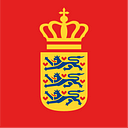Four Questions with QVARTZ
It all starts with wanting to do something differently.
When a dog bites a person, all is presumed to be within the natural order of things. After all, dogs have been known to take a chomp the hand, leg or thigh of an unfortunate soul. But when a man bites a dog, that natural order is overturned. It is disrupted. And the extraordinary is uncovered. It’s that very disruption and the pursuit of the extraordinary that has driven the management consulting firm QVARTZ since it was founded in Copenhagen back in 2002, and since helped it develop a powerful presence across four continents and in eight different cities.
Now, after landing in New York, QVARTZ has exported its ambitions to the US consulting market, widely considered to be the largest and most sophisticated market of its kind. But how does the intriguing art of biting dogs fare on this side of the Atlantic?
Denmark In New York spoke with Kent Harrison Søgaard, from QVARTZ’s New York office, about the firm’s ambitions in the Big Apple and how it’s rolling out a unique, Nordic-inspired vision for the future of management consulting in the US.
Denmark In New York: Tell us a little about QVARTZ and what brings the company to New York?
Kent Harrison Søgaard: QVARTZ is a tier-one management consulting firm. It was founded by a small group of partners in Copenhagen in 2002. Since then, our work has continued to gain global traction and the company has grown to over 450 people with offices in Copenhagen, Hamburg, Manila, New York, Oslo, Singapore, Sydney and Stockholm. We consider ourselves a “small giant” in the world of management consulting and we primarily compete against the old American behemoths. Clients have less and less appetite for stale analyses; they want cooperation partners who can build on their existing knowledge base to develop forward-leaning ideas and change.
In Scandinavia, we are now among the largest top-tier management consulting firms and this forms a solid foundation from which to expand internationally. We are also in the fortunate position that many of our European clients employ our services in the US as well as in Europe. Especially over the last few years, we have seen significant growth in demand for the type of services we offer in the U.S. We hit a tipping point about two years ago at which point it made sense to open an office in New York.
QVARTZ aspires to “change the consulting industry from within.” What does QVARTZ bring to the table that sets it apart from other consulting firms?
Kent Harrison Søgaard: At QVARTZ, we do not run our business from the top down. Today, the most talented candidates are not motivated by working in a “Yes sir” top-down culture with strict hierarchical structures. They want to be part of something they can shape, and we employ a “lead from ahead, not above” approach to leadership across all tenures. That is also why we — at the risk of sounding pretentious — have always referred to QVARTZ as a civilization rather than a company. Like a civilization, we invest in building long-term relationships both internally and externally. People respond to this approach and the strong culture it brings. Less than 5% of new hires leave within the first two years, which is far less than the norm in management consulting.
As a top-tier management consulting firm, we emphasize classic analytical skill sets (what we call tackle and solve), but we also value softer change management skills and humanism (what we call engage and mobilize). It is common for firms to rely on management consultants to support them on analytical questions and issue diagnostics, but management consultants can also be very valuable agents for change, provided you employ the right consultants with the right mindset and not least the right level of experience. QVARTZ’s ability to marry both skill sets is at the root of our value proposition and track record.
How do you plan to preserve QVARTZ’s Nordic values and heritage in the US?
Kent Harrison Søgaard: An important part of our value proposition is the way we manage our civilization collectively and how we organize, or rather do not organize, ourselves. QVARTZ tries to embody that same approach irrespective of geography. Building strong relationships is a prerequisite to thriving in any environment. Unfortunately, these values are not rewarded in the classic pyramid-shaped up-or-out management consulting structure. But that model is ripe for disruption. We see that clearly manifested in our ability to hire the best talent and build long-lasting relationships with our clients.
What is the biggest difference between working with U.S. clients and Danish or Nordic clients?
Kent Harrison Søgaard: The US is in many ways the birthplace of management consulting, so we find that many clients here are very experienced buyers of consulting services. It gives us a lot of confidence and continues to validate our approach when clients find our work to be insightful and impactful. Often our clients tell us that in comparison to previous encounters with consulting services, our work has enabled them to realize value much faster.
Our co-creation and focus on engaging and mobilizing client organizations is not the norm in the US, where much more reliance is put on the “old” insights-only consulting model. We have had the opportunity to work with brilliant minds across a host of industries and not only have our clients been universally enthusiastic to engage with our approach, but for many companies it has also engendered lasting and profound change.
